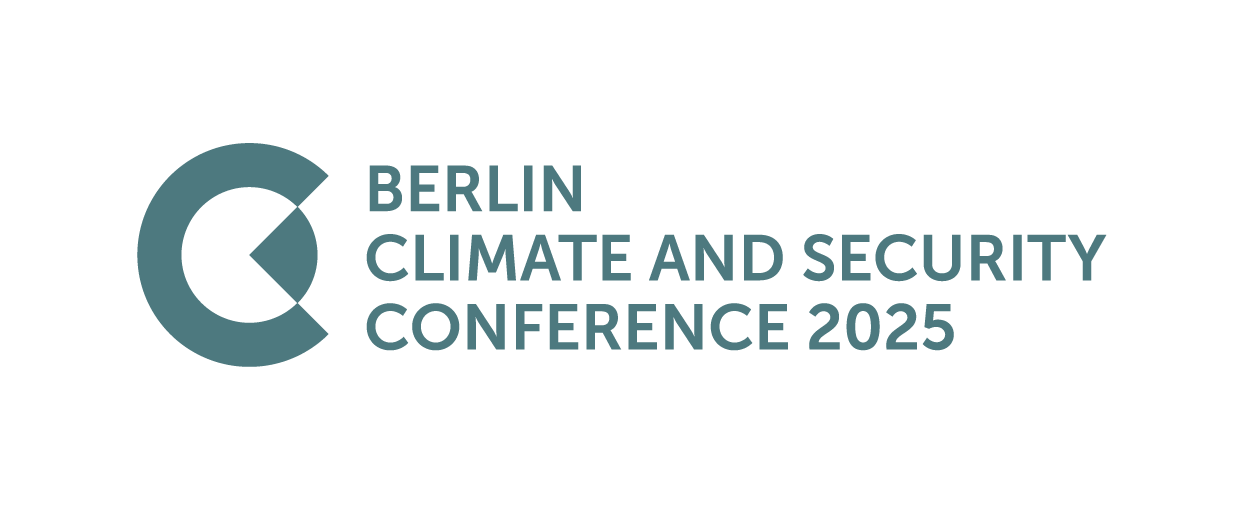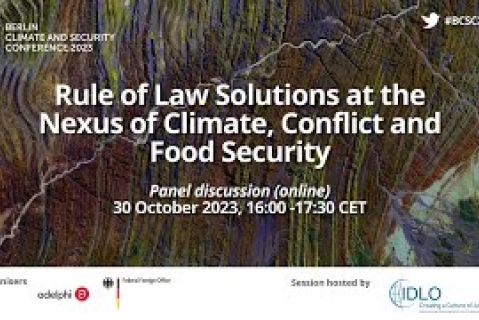
Rule of Law: Solutions at the Nexus of Climate, Conflict and Food Security
When: Monday 30 October 2023 | 16:00 CET
Billions of people worldwide rely on land and natural resources for their livelihoods. The adverse effects of climate change, environmental degradation, and natural hazards induce scarcities in arable land, water, forests and rangelands – driving up competition, generating conflict between users, and undermining the stability of food systems. At this confluence, the people who will be most affected are those who already experience exclusion and marginalisation and who face significant structural and systemic barriers to owning, controlling and accessing land - including youth, Indigenous peoples, smallholder farmers, pastoralists, migrants and refugees. Women and girls are among the populations most affected by the compounded effects of climate change, food insecurity and conflict - despite the fact that women are major contributors to food production, and ensuring their equal participation in food systems can have transformational impacts for food security on a large scale.
To these ends, the rule of law is a crucial enabler for climate justice, inclusive land governance, and food systems transformation. Comparative analysis has shown that countries where the rule of law has improved also demonstrate key food security indicators, such as lower prevalence of undernourishment. Systematic rule of law interventions can address these challenges by reducing inequalities and eliminating discriminatory laws and practices, empowering rights-holders most reliant on land to make their voices heard, and promoting the sustainable use of natural resources through clear and effective laws and policies. Bolstering dispute resolution mechanisms around the productive resources critical to food production will also be key to ensuring the peaceful resolution of disputes.
Guiding Questions:
- What are the main linkages between food security, climate change, and conflict?
- How can more inclusive governance arrangements over land and natural resources contribute to more sustainable food systems and contribute to food security?
- What are the main rule of law interventions that can transform food systems – particularly in the context of fragile, complex and post-conflict environments?
- What measures are most effective in guaranteeing the equal rights of women and girls to land, water, and other natural resources, and ensuring their participation and representation in law and policy-making relating to climate action and food security?
Speakers:
- Elisa Scalise, Director of Land and Resource Rights at World Resources Institute
- Irmina Pacho, Climate Justice Specialist at International Development Law Organization (IDLO)
- Marina Mastrorillo, Research Team Leader at Consultative Group on International Agricultural Research (CGIAR)
Moderated by Arthur van Buitenen, Policy, Advocacy & Engagement Advisor at International Development Law Organization (IDLO).
Hosted by International Development Law Organization (IDLO).

